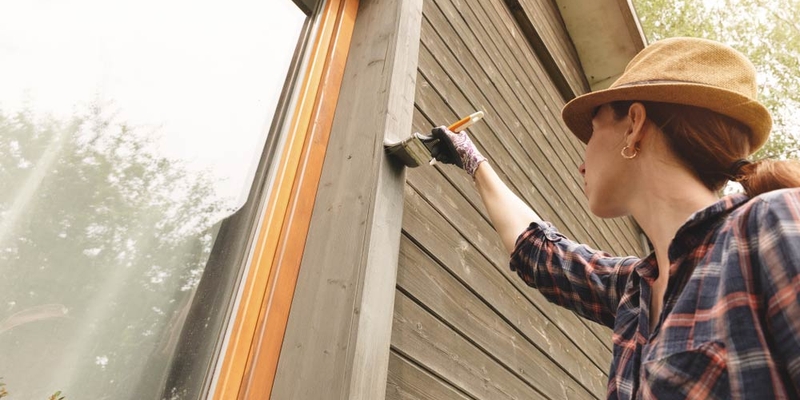
If you are not redirected within 30 seconds, please click here to continue.
Samedi: 10h – 16h HAE

If you are not redirected within 30 seconds, please click here to continue.
If you are not redirected within 30 seconds, please click here to continue.
Does it make sense to get into a bidding war on a house flip?

Canada’s home sales may have fallen by double digits in April, but bidding wars, despite being on the decline, may still be a hurdle for some homebuyers. Going toe-to-toe with other desperate buyers, especially in urban markets like Vancouver or Toronto, can drive home prices hundreds of thousands of dollars above asking.
But investors looking to buy a home and then flip it may end up in a precarious financial position if they enter a bidding war. Here’s why.
A home’s purchase price doesn’t always equal its value
During the height of the pandemic, underpriced listings, rock-bottom interest rates, and a low housing supply created the perfect recipe for bidding wars — and fuelled the worst housing affordability crisis in a generation.
While some homeowners may be able to justify the amount paid over asking, excess costs can present a major financial risk for prospective investors looking to buy a flip, increasing upfront expenses and eating into any potential returns.
Before approving a mortgage, lenders often require a property appraisal to determine a home’s value. If your bid happens to be higher than the appraisal, your mortgage won’t cover the difference. So if you’ve waived the condition of financing, you’ll find yourself on the hook for the rest, or you could lose your home deposit.
“If the appraisal comes in short, you have to — dollar for dollar — cover the difference between where the appraisal comes in and where the purchase price would be,” says Clinton Wilkins, team leader of Halifax-based Clinton Wilkins Mortgage Team. This is true whether you’re buying a home for yourself, as an investment, or to turn it into a rental property.
Is it worth getting into a bidding war under these conditions? It might be if you’re looking for a place to call home. An investment property, however, might be a different story.
A primary residence versus an investment property
Entering a bidding war on a flip might be worth the risk if you’re trying to buy it as a principal residence. After all, Wilkins says, you won’t end up paying capital gains tax on the property if it’s your primary residence.
According to the Canada Revenue Agency (CRA)’s website, you can only avoid capital gains tax when selling your primary residence if it was solely used as your home. You cannot have used it as a rental or investment property, however. Wilkins says some people may think it’s worthwhile to get into a bidding war on a primary residence even if their mortgage doesn’t cover the full cost of the final bid. “[People have] said ‘We’ll make up the difference anyway because the market is so competitive,’” he explains.
But that’s not always advisable, especially if you’re planning on flipping the home within a year or two. Due to a combination of interest rate hikes from the Bank of Canada and inflation, the housing market is starting to cool. In April, national home prices dropped 12.6% on a month-over-month basis, according to the Canadian Real Estate Association (CREA). While that may be ideal for homebuyers desperate for a place of their own, it isn’t for investors.
“If the prices stop [increasing], then that can eat into [an investor’s] margin,” Wilkins says, “especially if they’re planning on doing renovations or selling their property relatively quickly. Maybe that’s not a good investment.”
Impending residential property flipping rule
Unfortunately for flippers, the issues don’t end there. Starting on Jan. 1, 2023, residential properties sold by an owner who held them for less than a year will be considered by the Canadian government to be house flipping — and they’ll pay full tax on their profits at the seller’s personal tax rate.
For example, Wilkins says, if you make $100,000 in profit from a house flip and currently pay a 50% tax rate, the federal government will tax you $50,000. The new tax rules consider house flippers to be business owners rather than private individuals buying and selling property. “That can be very expensive for property investors to buy and sell properties in a very short period of time.”
What can homebuyers do if they’ve overbid on a property?
Ideally, an appraisal should come in for whatever a homebuyer bids on a property. If it doesn’t, the buyer has two choices: pay the difference, or renegotiate with the seller at a lower purchase price. The latter may be a little more likely in today’s softening housing market, but it’s ultimately up to the seller to agree.
Alternative lenders might be willing to give a second mortgage to cover the difference, as Toronto-based mortgage broker Mary Sialtsis told CTV News. Still, she admits this situation is tough to navigate. “Unfortunately, there are very few options when you’ve purchased a property with no conditions and no financing conditions,” she said.
The million-dollar question for homeowners stuck with a low valuation and high bid is whether the market will surge again in time to make up for the gap between a mortgage and appraisal value.
“If you are making up the difference, and the appraisal comes in short today, do we think there’s going to be growth in [home] valuations over the next 12 to 24 months?” Wilkins asks. “I’m not sure.”
Compare Mortgage Rates
Engaging a mortgage broker before renewing can help you make a better decision. Mortgage brokers are an excellent source of information for deals specific to your area, contract terms, and their services require no out-of-pocket fees if you are well qualified.
Here at RATESDOTCA, we compare rates from the best Canadian mortgage brokers, major banks and dozens of smaller competitors.
Get money-saving tips in your inbox.
Stay on top of personal finance tips from our money experts!








